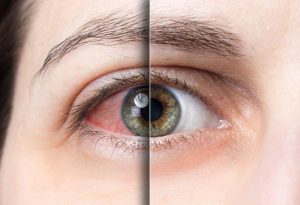You might be worried about the constant stomach or chest burning (also known as heartburn) affecting your daily lifestyle and busy routines.
The little fire raging inside is so uncomfortable that it sometimes feels like a dull ache, other times the pain gets sharp and stabbing especially when you lie down.
And now you’re wondering how to stop stomach burning symptoms immediately and not let it ruin your day. The good news is that you can stop the burning sensations with some remedies, and medicines at home.
However, taking some early steps to identify the root cause of burning issues is crucial. But before we dive in, let’s explore the causes of stomach burning, what it feels like and how you can stop it!
Why Does Your Stomach Feel Hot Inside And Bloated?
Before you move on to exploring instant solutions to relieve stomach burning, you need to find out why your stomach is feeling hot inside and bloated.
Well, here are five possible reasons that you could be feeling upper abdominal discomfort:
1. Indigestion
If you had gobbled down food too quickly last night or you ate a heavy meal in dinner, your stomach might be having a hard time breaking down the food you ate – this is known as indigestion or dyspepsia.
One of the common symptoms of indigestion is a feeling of tightness in the abdomen, bloating, nausea, and stomach burning. Sometimes, mild symptoms wear off on their own, however, if you’ve persistent, severe symptoms, swinging by an urgent care could be a good move.
2. Acid Reflux and GERD
One of the most common causes of stomach burning is when the acid in your stomach slightly flows into your esophagus causing stomach and chest discomfort.
Along with the burning sensations, acid reflux can cause difficulty swallowing and a persistent cough. Moreover, if it is not treated properly, it can lead to Gastroesophageal Reflux Disease (GERD), a more severe and chronic form of acid reflux disease.
3. Response To Certain Medications
Some medicines directly affect the gastrointestinal system causing stomach burning and bloating in most people. These medicines include:
- Antibiotics: Macrolides, Cephalosporins, Penicillins or Fluoroquinolones
- Non-steroidal anti-inflammatory drugs: Aspirin, Ibuprofen, Naproxen, etc.
- Corticosteroids: Prednisone, Dexamethasone, etc.
- Some Iron and Potassium supplements might also cause stomach irritations in some people, resulting in reflux.
If you are currently taking any of the medicines mentioned above, it’s advisable to consult your doctor who will guide you on effectively managing stomach burning if it occurs.
4. Food Intolerances
Stomach burning can also occur if you’re intolerant to some foods such as gluten, dairy products, or certain food additives. Most people might also experience nausea, bloating, and upper abdominal cramps with burning sensations in the stomach if they consume foods allergens that they are intolerant to.
5. Certain Diseases
Some gastrointestinal issues, such as peptic ulcers or irritable bowel syndrome can lead to a plethora of symptoms like stomach burning, pain, bloating or nausea.
Other diseases that might trigger upper abdominal discomfort are stomach cancer, stomach infections, pancreatitis, gastritis and much more.
So, if you suffer from any of the above-mentioned diseases, it is important to go for a checkup at a nearby urgent care for a proper evaluation and diagnosis.
5 Steps You Can Take To Stop Stomach Burning Immediately
1. Avoid Eating Trigger Foods
In people who have food intolerances, acid reflux, or GERD, the best way to stop triggering or worsening stomach burning is to stop eating trigger foods.
You can keep a food journal with you and pen down the meals and snacks that you eat daily. This will help you identify trigger foods and help record the onset of symptoms along with the frequency.
The most common trigger foods that cause stomach burning are fried or spicy foods, dairy products, citrus, gluten, alcohol, carbonated drinks and caffeine.
After identifying possible trigger foods for stomach and heartburn, you can replace these foods or snacks with something healthy. Suppose you can’t control your food cravings or you’re overeating. In that case, you can either get help from a health and wellness expert or visit a general health coach nearby who will help you take steps that will help you take care of your health and control acid reflux or GERD effectively.
2. Use Ginger To Relieve Nausea & Bloating
A recent study published in the Journal of Digestive Diseases found that ginger extracts or supplements benefit people with dyspepsia or indigestion by reducing stomach pain and irritation.
Several other kinds of research have been conducted to study the effects of ginger on reducing inflammation and relieving symptoms of acid reflux such as stomach burning, nausea and bloating.
Therefore, you can grate a small piece of ginger, steep it in water and make ginger tea which will help curb various stomach problems due to its anti-inflammatory properties.
3. Avoid Lying Down After Eating
Lying down flat right after taking a meal can negatively affect the digestion process due to the increased pressure in the stomach. Due to this, the stomach acid can flow back up into the esophagus and lead to a rather uncomfortable burning sensation and a bitter taste in your mouth.
Not to mention, lying flat might delay the stomach’s emptying time and lead to more acid release, triggering stomach and heartburn symptoms.
Therefore, if you’ve taken dinner close to bedtime, a convenient solution is to adjust your sleeping surface by raising your upper body with the help of extra pillows. Also, a more appropriate option is to take your dinner 3 hours before going to bed.
4. Take Over-the-counter Medications
If you feel stomach burning, bloating and mild stomach pain even after avoiding trigger foods and utilizing home remedies, you can visit a nearby pharmacy and get some OTC medications to help relieve stomach burning instantly.
Some commonly used medicines for stomach or heartburn are:
Proton Pump Inhibitors: They are used to lower the amount of stomach acid and treat symptoms of indigestion, acid reflux and GERD.
H2 blockers: work by blocking some receptors and reducing the amount of acid in your stomach relieving stomach burning sensations.
Antacids: help neutralize the stomach acid that causes stomach or heartburn.
5. Visit an Urgent Care Clinic Nearby
You might have tried and tested age-old remedies, but nothing seems to work! The stomach-burning symptoms keep coming back as you can’t identify a proper cause.
In some cases, your ongoing symptoms could be due to underlying medical conditions like GERD or dyspepsia.
Therefore, a quick step is to consult a healthcare professional at an urgent care clinic who will help evaluate your medical condition, identify the cause of persistent stomach discomfort, and prescribe medicines right away to give you instant relief.
When Should You Contact The Doctor For Stomach Burning?
Mild stomach burn or indigestion is not a concern as it might settle on its own. However, if your symptoms persist or return after eating, you should talk to a doctor immediately.
Also, you need to seek immediate medical help if you experience any of the following symptoms along with stomach burning and pain:
- Black, bloody or tarry stools
- Unexplained weight loss
- Trouble swallowing or breathing
- Persistent nausea and vomiting
- Feeling of fullness in the stomach
- Fever along with stomach pain
- Not being able to sleep at night
The doctor will order different tests or exams to evaluate your condition and devise a personalized treatment plan.
Why Visit Family Urgent Care For Stomach Discomfort?
Stomach burning and pain can undoubtedly disrupt your work and daily life. If you suffer from persistent burning sensations, it is important to identify the root cause, as it can indicate an underlying medical condition.
This is where Family Urgent Care steps in as your trusted health partner for managing stomach-related issues. Here’s what you can expect from our experienced healthcare providers:
- Quick evaluation of symptoms: The doctors examine your abdominal area and ask you about your symptoms, medical history, and any other pre-existing medical condition.
- Lab-testing & imaging facility: We have on-site diagnostic tools and equipment, such as X-rays, ultrasound machines, and lab tests, so you won’t need to travel to another lab-testing facility.
- Prompt treatment: No long waiting lines in the clinic! You can walk in or schedule a prior appointment.
- Convenience & accessibility: We are based in multiple locations: Rogers Park, Lincoln’s Park and Schererville. If you can’t visit a healthcare facility on weekdays due to a busy schedule, you can visit us even on weekends and share your health concerns with our experienced healthcare providers.
- Follow-up care: You can also book online video or phone appointments and connect with expert doctors and healthcare providers without commuting to the clinic.


























